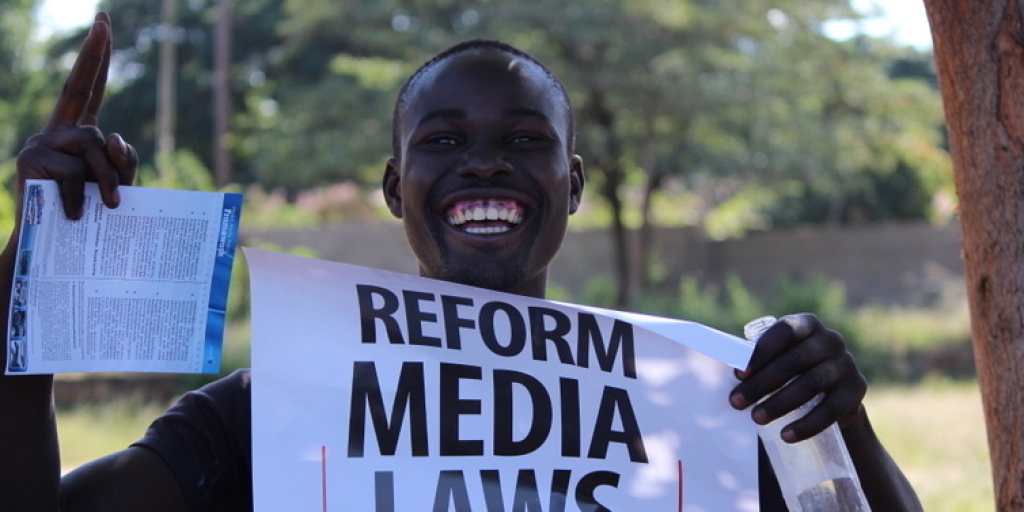Press Freedom Commission report still matters in a new political era
The Press Freedom Commission (PFC) was established by the South African National Editors’ Forum (SANEF) and Print Media South Africa (PMSA) in 2011 in the wake of a review published in August that year of the manner in which the Press Council of South Africa conducted its self-regulatory processes.
The initiative came at a time when the life of the Press Council in its existing form was coming to an end.
Chaired by Justice Pius Langa, the PFC was constituted as an independent body of persons of standing with a mandate to find the most efficient and effective regulatory system for the print media in South Africa.
It undertook a 10-month process, receiving submissions from more than 220 civil society groups, political parties, academics and members of the public, travelling to four countries and holding public hearings in Cape Town, Durban and Johannesburg.
It concluded that an independent co-regulatory mechanism involving the public and the press and not including state participation, would best serve press freedom in the country. This would replace the existing self-regulatory process, although it was not much different.
Whereas a true self-regulatory process involves only the media keeping tabs on itself, the system the Press Council had in place already involved the public and the press, which indicated more of a co-regulatory system.
The new system was more markedly different in other ways.
The PFC sought to enhance the role, accountability and responsibility of the press in the promotion of the values of a free and democratic South Africa, and in upholding the rights, dignity and legitimate interests of the people, in its report in April 2012. To be effective and responsible, the mechanism would have to manifest administrative fairness and institutional independence from the media
A significant departure was removing the waiver requirements of complainants and the characterisation of the complaints procedure as ‘arbitration’ – changes aimed at ensuring optimal accessibility.
Another major change to the complaints procedure, explained Julie Reid, Professor of Communication Science at the University of South Africa, was ‘the inclusion of third-party complaints, which meant that the Press Council, as a media regulatory body, was now more consistent with similar bodies such as the Broadcasting Complaints Commission of South Africa (BCCSA) and the Advertising Standards Authority (ASA, now the Advertising Regulatory Board)’.
‘Prior to the PFC process, the Ombudsman really only accepted complaints from parties directly involved in the offending press report, meaning that no matter how offensive an individual reader may have found the content of a particular publication, they could not lay a complaint unless they were directly connected to the report.
‘The PCF recommends that third party complaints now be allowed so long as the complaint can be deemed to be within the public interest … The denial of third party complaints meant that concerned parents who did not want their children exposed to images of sex on the front page of a newspaper, for example, had no grounds for a complaint to the PCSA, whereas they could lodge a complaint were the offending images screened on television before the watershed.’
In an Ombudsman matter in July 2021 relating to a complaint laid by Economic Freedom Fighters (EFF) member Leigh-Ann Mathys against Eyewitness News (EWN), Herman Scholtz (then Deputy Press Ombudsman, now the Press Ombudsman) wrote in response to a question about this that the Press Council ‘has been accepting complaints from third parties for many years, even in cases where there was a potential “true complainant”, being an implicated individual’.
Scholtz cited a few examples, including:
- Marlon Goss vs. News24 (5 February 2021), in which Goss, as an ordinary member of the public and as a Christian, was offended by a book review that ‘used derogatory words to describe Jesus Christ’.
- Elizabeth Pretorius vs. Rapport (21 February 2021) in which Pretorius, as a reader of the newspaper, took umbrage at the use of the Afrikaans word ‘tieties’.
- Lumko Mtimde vs. Daily Dispatch (3 April 2021) which was a complaint by a member of the public that a misleading headline ‘deliberately brought the ANC and the name of ANC President OR Tambo in disrepute’ when the newspaper referred to the OR Tambo Municipality only as ‘OR Tambo’. There is no indication that Mtimde complained with a mandate of the ANC or the family of the late OR Tambo.
- Nadine Hamman vs. Huisgenoot (5 December 2013) in which the Ombud upheld a complaint from an ordinary member of the public that the magazine published a photograph of the minor Griekwastad murder accused in contravention of Clause 8.3. of the Press Code. Neither the minor nor the minor’s guardian complained and the complainant did not act on the child’s behalf.
There was significant political pressure at the time of the PFC’s work, in that a resolution had been taken by the ANC in 2007 to request Parliament to investigate the desirability of a statutory Media Appeals Tribunal (MAT) for the print media.
This was preceded in 2004 by an attempt by government to withdraw the exemption of newspapers from the Films and Publications Act 1996. After negotiations with the government by PMSA and SANEF, the exemption in favour of newspapers under the Ombudsman was not removed.
In the pre-constitutional era, the apartheid government had, at times, taken steps to involve itself with newspapers by way of legislation. The apartheid government had a provision on the statute book according to which it could, at any time, institute statutory press control. This measure was withdrawn in 1993 at the instance of the Press Council.
The government also closed down pro-democracy newspapers in 1977, namely the World and Weekend World. Under the Emergency regulations of 1985, New Nation and South were closed down for three months in 1987.
Further attempts by the ANC in the democratic era to regulate the media have unsettled the industry, but, to date, it remains unregulated by the state and unified in its intention to remain free.
Rather, it is expected that the PFC and its legacy report, and the validity of the Press Council as an independent, co-regulatory mechanism, will resonate as a Government of National Unity sets about its work after the elections in May 2024.
- This article was compiled by Janet Smith, adjudicator at the Press Council




